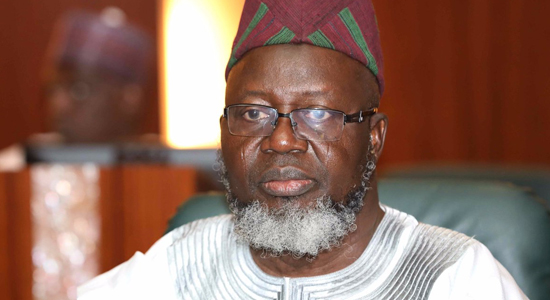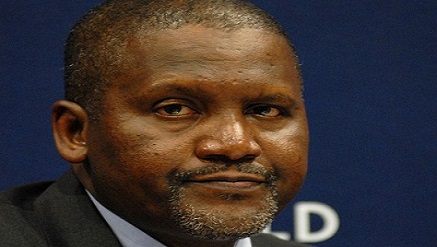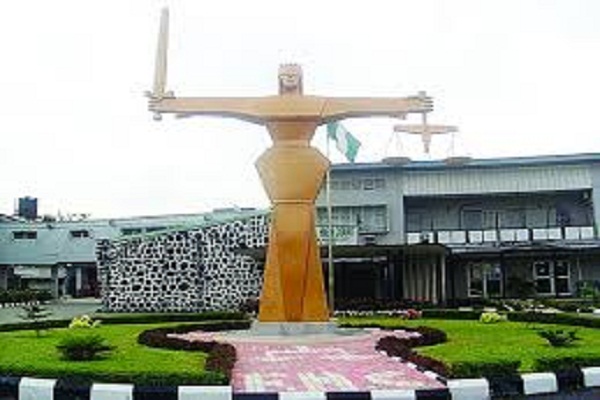News
FG Pledges to Provide Free Internet Access for Citizens

Adebayo Shittu, minister of Communications, says the federal government will ensure free access to the internet in public places across Nigeria.
Mr Shittu said this on Tuesday in Abuja at a one-day stakeholders workshop on the role of the Public Internet Access for Economic Development.
“We are trying to ensure the vision of free Wi-Fi all over, particularly in public spaces, at the airport, schools and all that,” Mr Shittu said on Tuesday.
Mr. Shittu said the government had been trying to ensure that internet accessibility is made available not just for privileged Nigerians but everyone.
“The Federal Ministry of Communication will ensure the privacy of beneficiaries of the free internet services is protected,” he said.
He said for this to be a reality, more investments are needed because the government alone cannot handle the financial responsibilities involved.
Mr. Shittu listed some of the challenges faced by the government in providing free internet services to include high cost of access, low broadband penetration, poor internet infrastructure, and poor enabling environment.
“The solutions to these challenges are beyond government’s intervention,” he said.
“In order to bridge the existing digital divide and encourage more Nigerians to participate in the global digital economy, private organisations and international partners are encouraged to support the government in different strategic ways.
“One of the models being adopted recently is the provision of free internet access by Public Internet Access Providers (PIAPs) in strategic locations to help more Nigerians connect to the internet in pursuit of social and developmental objectives for a return on investment (ROI) through advertisement or other means.
“This is expected to fuel some changes especially in creating jobs and help local SMEs compete with global brands.”
Last year, The Punch newspaper reported that Google Nigeria announced its plans to reach more than 10 million Nigerians with free Internet access in five cities.
According to the global content provider, the Wi-Fi will be available in 200 Google stations in Lagos, Kaduna, Port Harcourt, Ibadan, and Abuja by 2019.
The communications minister noted that the security of users is very important to the government even though it is an unregulated medium.
“However, it is an unregulated medium, and users should be aware of this. The security of the user both personally and in the transmission of information is of paramount importance to the government,” he said.
According to him, the National Information Technology Development Agency (NITDA), as the National IT regulator, came up with the Framework and Guidelines on the provision and use of Public Internet Access in Nigeria.
NITDA issued the framework and guidelines for Public Internet Access (PIA) in 2018.
Also speaking at the workshop, the Managing Director of Backbone Community Network (BCN), Ibrahim Dikko, said the resolution of providing free internet is to transform the economy in Nigeria.
He said the organisation was partnering with Google to ensure that high-quality access is given to people in Nigeria.
“The key thing is to provide high-quality access to people in public places,” he said
“We have five sites in Abuja, we plan to have 64 sites in Abuja, Kaduna, Zaria and Kano, and we are looking forward to spreading it across the North,” he said.
On her part, the Public Policy and Government Relations Officer for Google, Titi Akinsanmi, said it is a possibility that Nigerians enjoy free internet access across the country.
She said Google is committed to providing free access to the country but not working with the local system.
“We will bring our expertise that can translate to success when we work with existing record partners, we are getting closer to getting it done,” she said.
She emphasised the safety of online users as a pronouncement was made last year.
“We had a partnership with Nigerian Educational Research Council, there will be an online safety curriculum to all secondary schools in Nigeria,” she said.
“We have signed an agreement with the board for online curriculum, it will be implemented on 30th September 2019,” Ms Akinsanmi said.
She also said the platform will be compliant with the existing local laws.
“We are working with existing local laws and constitution,” she said.
News
Aliko Dangote Signs out @ Dangote Sugar Refinery as Chairman

In a major leadership transition, Dangote Sugar Refinery Plc (DSR) has announced the retirement of Aliko Dangote, its founder and chairman, from the Board, effective June 16, 2025.

Aliko Dangote
The announcement was made in a regulatory filing with the Nigerian Exchange Ltd on June 11, highlighting the company’s commitment to sound corporate governance and structured succession planning.
In a statement signed by Mrs. Temitope Hassan (FCIS), company secretary and legal adviser, the Board praised Dangote’s extraordinary leadership and lasting contributions to the company.
“Alhaji Aliko Dangote is one of the founding Directors of the Company and has served with exceptional leadership, integrity, and vision since 2005,” the statement read.
“Under his stewardship, Dangote Sugar Refinery transformed significantly, navigated industry changes, consistently delivered value to shareholders, and upheld strong governance principles.”
Widely regarded as Africa’s most influential industrialist, Dangote led DSR’s evolution into a dominant player in Nigeria’s sugar value chain.
His strategic initiatives, particularly the Backward Integration Projects (BIPs) across Adamawa, Taraba, and Nasarawa States, advanced the company’s self-sufficiency goals and aligned with the federal government’s national sugar master plan.
While stepping down from DSR, Dangote will continue as President of Dangote Industries Limited.
His legacy at DSR is marked by industrial innovation, strategic foresight, and sustained operational excellence.
To ensure a seamless transition, the Board has appointed Mr. Arnold Ekpe, a seasoned independent non-executive director, as the new chairman, effective June 16.
Ekpe is renowned for his tenure as Group CEO of Ecobank Transnational Incorporated, where he championed pan-African financial inclusion and institutional growth.
His extensive experience in banking and corporate governance is expected to strengthen DSR’s next phase of development.
The leadership change signals continuity of vision, with DSR reaffirming its focus on operational efficiency and long-term value creation in a dynamic market.
For shareholders and industry observers, Dangote’s exit from the Board marks the end of a transformational era—one defined by bold ambition and strategic execution—while opening a new chapter under Ekpe’s leadership.
News
Report Reveals New Malware Posing as an AI Assistant Steals User Data

Kaspersky Global Research & Analysis Team researchers have discovered a new malicious campaign which is distributing a Trojan through a fake DeepSeek-R1 Large Language Model (LLM) app for PCs.

The previously unknown malware is delivered via a phishing site pretending to be the official DeepSeek homepage that is promoted via Google Ads.
The goal of the attacks is to install BrowserVenom, a malware that configures web browsers on the victim’s device to channel web traffic through the attackers servers, thus allowing to collect user data – credentials and other sensitive information. Multiple infections have been detected in Brazil, Cuba, Mexico, India, Nepal, South Africa and Egypt.
DeepSeek-R1 is one of the most popular LLMs right now, and Kaspersky has previously reported attacks with malware mimicking it to attract victims. DeepSeek can also be run offline on PCs using tools like Ollama or LM Studio, and attackers used this in their campaign.
Users were directed to a phishing site mimicking the address of the original DeepSeek platform via Google Ads, with the link showing up in the ad when a user searched for “deepseek r1”.
Once the user reached the fake DeepSeek site, a check was performed to identify the victim’s operating system. If it was Windows, the user was presented with a button to download the tools for working with the LLM offline. Other operating systems were not targeted at the time of research.
After clicking on the button and passing the CAPTCHA test, a malicious installer file was downloaded and the user was presented with options to download and install Ollama or LM Studio.
If either option was chosen, along with legitimate Ollama or LM Studio installers, malware got installed in the system bypassing Windows Defender’s protection with a special algorithm.
This procedure also required administrator privileges for the user profile on Windows; if the user profile on Windows did not have these privileges, the infection would not take place.
After the malware was installed, it configured all web browsers in the system to forcefully use a proxy controlled by the attackers, enabling them to spy on sensitive browsing data and monitor the victim’s browsing activity.
Because of its enforcing nature and malicious intent, Kaspersky researchers have dubbed this malware BrowserVenom.
“While running large language models offline offers privacy benefits and reduces reliance on cloud services, it can also come with substantial risks if proper precautions aren’t taken.
Cybercriminals are increasingly exploiting the popularity of open-source AI tools by distributing malicious packages and fake installers that can covertly install keyloggers, cryptominers, or infostealers.
These fake tools compromise a user’s sensitive data and pose a threat, particularly when users have downloaded them from unverified sources,” comments Lisandro Ubiedo, Security Researcher with Kaspersky’s Global Research & Analysis Team.
News
Court Declares Bank’s Withholding of Retirement Benefits Unlawful

National Industrial Court in Lagos has ruled that a deposit money bank must pay over N162 million in outstanding retirement benefits to a group of its former employees.

The judgment, delivered by Justice R.H. Gwandu, criticized the bank’s attempt to withhold entitlements from staff employed through third-party arrangements.
The claimants, represented by Chief Mike Ozekhome, SAN, argued that the bank violated labor laws by refusing to honor their retirement benefits. They sought declarations that the bank’s actions were unlawful and requested immediate payment of their dues.
Justice Gwandu ruled in favor of the employees, stating that the use of third-party employment to evade obligations was unacceptable.
The court acknowledged their long service and dismissed the bank’s argument that they did not meet the required 15 years of uninterrupted service.
Notably, the court upheld the rights of the 10th claimant, who continued working with the bank after its merger with Manny Bank and another commercial institution.
This landmark ruling reinforces workers’ rights and establishes that organizations cannot use outsourcing arrangements to deny employees their legitimate benefits.

 News2 days ago
News2 days agoCDCFIB Warns against Recruitment Racketeers

 Telecom2 days ago
Telecom2 days agoMeta, FMCIDE Unveil AI Accelerator to Drive Innovation in Nigeria

 News2 days ago
News2 days agoFG May Forfeits $4m from World Bank Loan over Audit Flop

 Broadcasting2 days ago
Broadcasting2 days agoAfia TV and Radio Stamps Footprints in Lagos

 Telecom2 days ago
Telecom2 days agoNigeria Leads the Charge in Green Innovation @MTN’s Africa PachiPanda Challenge

 E-Financial2 days ago
E-Financial2 days agoNDIC Begins Final Settlements to Creditors of Liquidated Premier Bank

 Telecom1 day ago
Telecom1 day agongCERT Issues High Alert to Nigerians Using Android Phones

 Telecom2 days ago
Telecom2 days agoZinox Technologies Collaborates with FGN for VivaTech Paris 2025




























